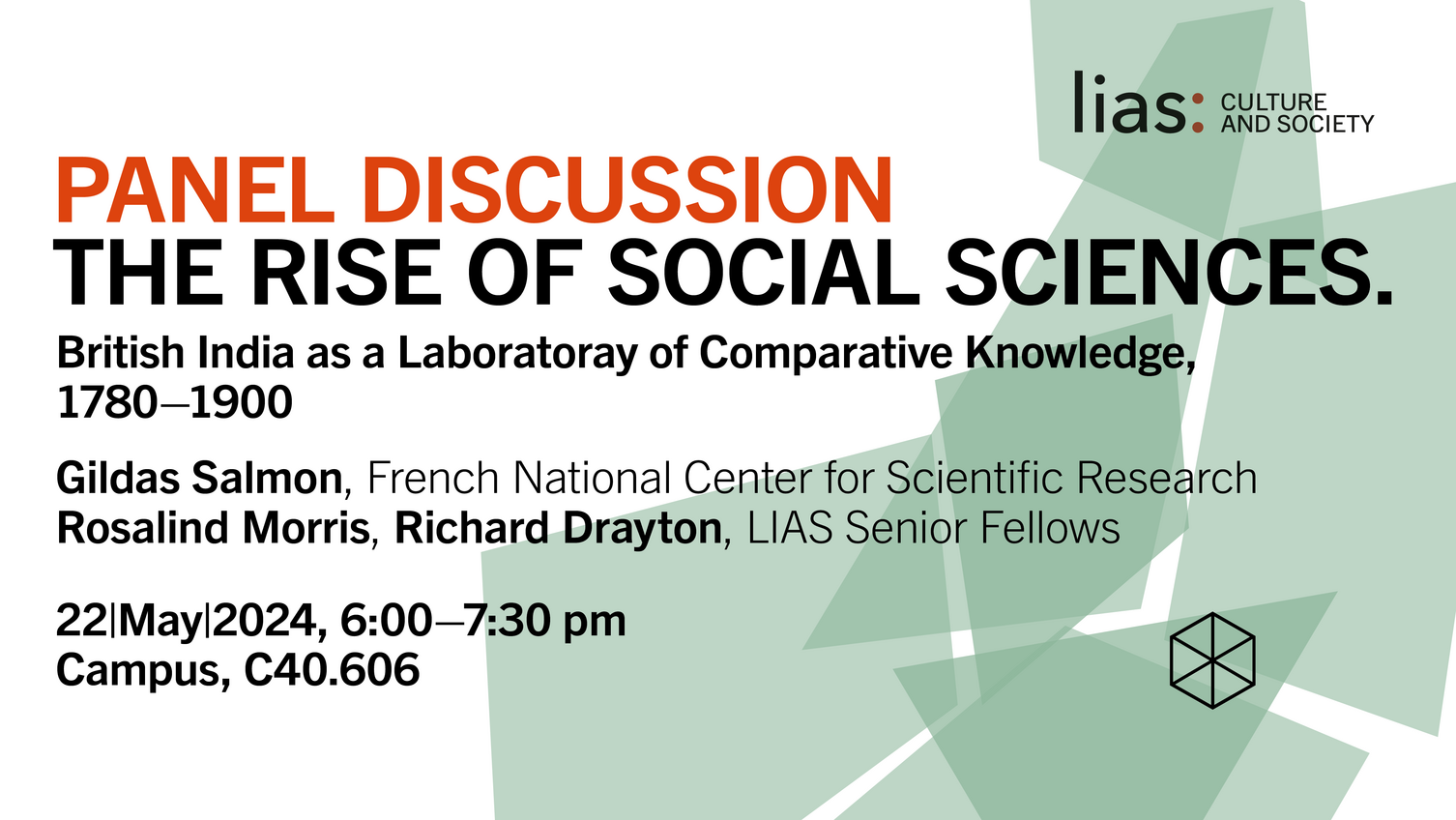LIAS Panel Discussion: "The Rise of Social Sciences. British India as a Laboratoray of Comparative Knowledge, 1780-1900"
Wednesday, 22 May, 6–7:30 pm
22. May
Gildas Salmon, Lecturer at the French National Center for Scientific Research
Gildas Salmon examines the emergence of the modern comparative sciences in the context of colonialism. He argues that these sciences emerged from the imperative of colonial authorities to govern other societies. Salmon emphasises the importance of colonial knowledge for the development of the human sciences and refutes the concept of orientalist knowledge as a purely European construction. Rather, it was an appropriation of non-European knowledge for the benefit of the colonial power. Because it was alien to the cognitive frameworks imported by the colonial administrators, it was able to have such a profound effect on European knowledge by providing them with more powerful tools of analysis than they had previously had at their disposal. He examines India, specifically Bengal, as the first large Asian territory and population to come under European rule and shows how this knowledge influenced the colonial power structure. He argues that the hybridisation of Brahmanical and European knowledge led to a new form of knowledge contribution that was specific to the British Empire.
With Rosalind Morris, Richard Drayton, LIAS Senior Fellows
Leuphana Campus | Central Building C40.606

